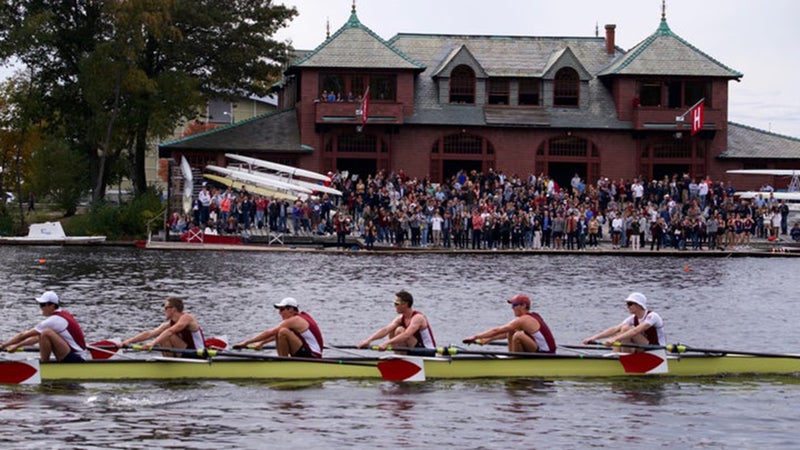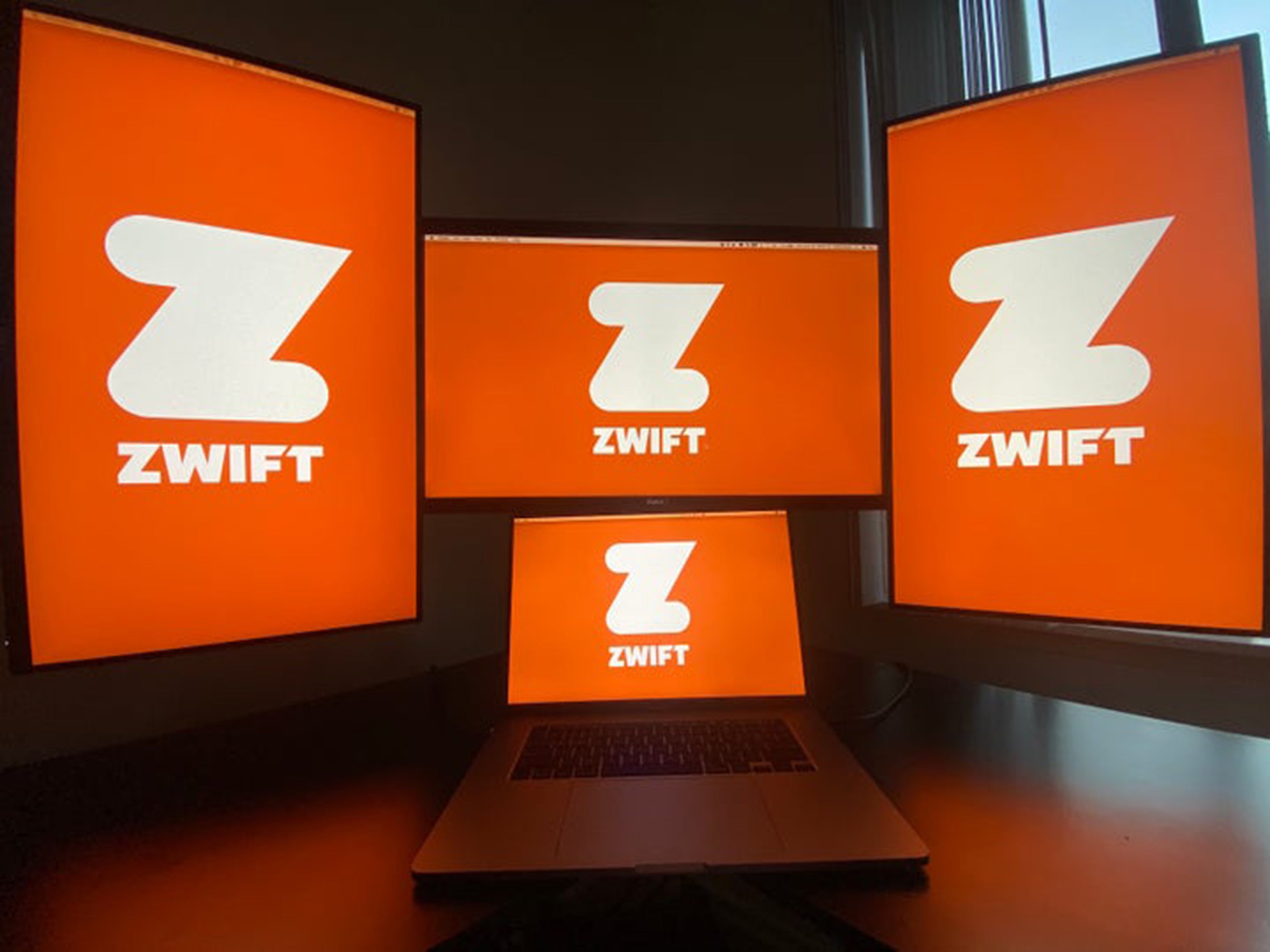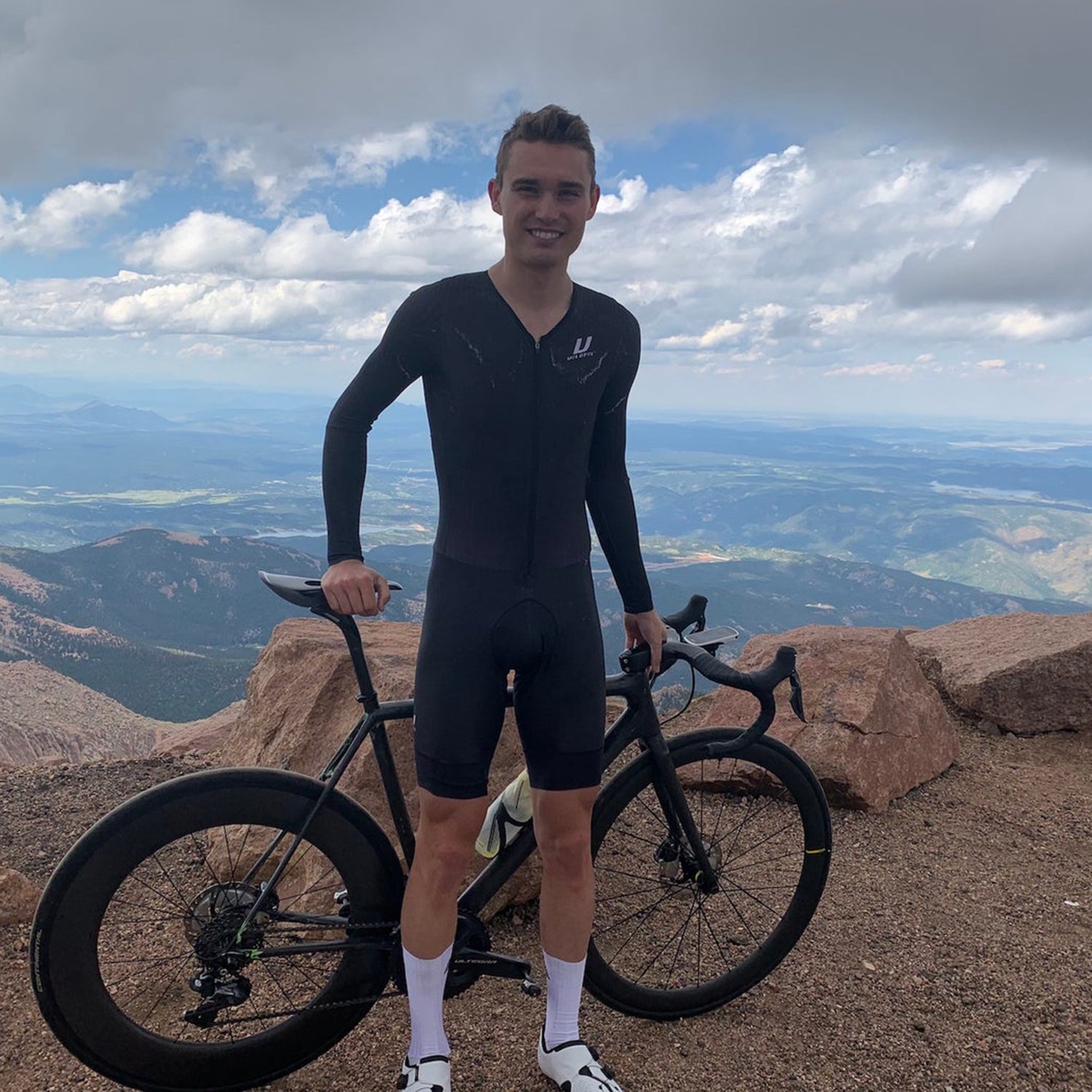This story was originally published by .
Drake Deuel’s postcollegiate path could have been relatively clear: work as a software engineer while training for a spot on the U.S. Olympic rowing team.
Now, as of a month ago, the 22-year old Harvard grad is a full-time Strava KOM hunter who plans to go back to work in six months. I have my doubts.
On March 4, on the Haleakala ‘World’s Longest Paved Climb’ Strava segment on the Hawaiian island of Maui by three minutes. A few weeks before that, he sustained a 430-watt effort for 17 minutes to take the KOM in Southern California from Phil Gaimon.
That was the day after he finished an eight-month internship as a software engineer at Zwift.
So why is Deuel, who doesn’t have any personal sponsors and isn’t making any money by riding his bike, taking the next six months to see how many other records he can break?
“It is a way to get attention, to get noticed,” the 22-year old told VeloNews. “Especially with no racing, if I want people to see the fitness that I have there’s not a lot else that I can do other than smash some KOMs.”
Row Your Boat
Deuel spent eight years as a competitive rower until the coronavirus pandemic abruptly ended his season—and effectively, his rowing career—in March 2020. He was barely into his junior year at Harvard (and just back from the Maui trip that would inspire his Haleakala KOM a year later) before he was sent home to Dallas. He didn’t know it then, but the day he left campus would be the last day he was in a boat.
Deuel told me that at one time he had aspirations to try and make it to the Olympics as a rower, so I wondered if he was crushed to have his career ended so abruptly by something so out of his control.
“I loved rowing, and I think I got a ton out of it, but rowing is more difficult after an academic setting, where it’s harder to find a team, and a lot of the value is in the team aspect,” he said. “People describe cycling as a team sport, but rowing is much, much more so. So without that aspect, you’re just rowing by yourself.”

Fortunately, Deuel had discovered that he loved cycling right around the time he entered college. In fact, while the school year was dedicated to the boat, summers were for the bike.
Multiple rowers have crossed over to cycling and thrived, among them Olympic champion Rebecca Romero, as well as German rider . Deuel had some rowing achievements that hinted at potential successes on the bike: in 2018, he set two world records on the Concept2 indoor rowing machine in the 10,000-kilometer and half-marathon distances.
When I asked Deuel to ID himself in a photo he sent of his team rowing in the Head of the Charles Regatta, he said that he is the one in three-seat, which is considered the “dumb muscle” seat for people who are really strong but not as technically proficient.”
“So I knew my fitness translated well to cycling,” he said. “But it’s a matter of getting out on the road and actually learning about cycling, so that even if you have the base fitness, you can develop more.”
Ride Your Bike
Fortunately, in addition to his physiologic affinity for it, Deuel said he also found cycling to be really fun.
“Just before freshman year of college, I was invited by a soon-to-be classmate to take a cycling vacation in Switzerland for ten days,” he said. “I did that, and the first day I got there was the first time I ever clipped into a road bike. We went for a full day trip around Geneva and into France and back, I crashed six times, and decided that I loved it. Less than a year later, I bought my first road bike.”
Then, during his summer breaks from school, Deuel rode more. After his freshman year, he raced in New England for a month and a half. After his sophomore year, he took a trip to Colorado and did the Mount Evans Hill Climb, finishing three minutes behind EF Education-Nippo’s Lachlan Morton. Because wasn’t enough, he pedaled up Pikes Peak, too. That ride turned into a different kind of race.
“It was the first KOM hunting I ever did,” Deuel said. “I think the reason I went for it is there was a former rower at top of the leaderboard that I wanted to take down.”
Deuel was still rowing at Harvard, but bikes were becoming more than just a side hustle.
In the fall of his junior year, Deuel heard about Zwift Academy, the talent ID program that the online-racing platform has hosted since 2016. He signed up and made it to the semifinals. That wasn’t the only success of the program, however. After he’d completed the Academy, Zwift CEO Eric Min’s secretary reached out to Deuel, asking him if they could meet on Harvard’s campus before the holiday break.
“I gave them my résumé at that point,” he said. “Of course there was no way I could have anticipated the dramatic increase in popularity of Zwift then.”
Deuel landed the internship at Zwift; it was meant to be a buffer between his junior and senior years of college. Then COVID-19 canceled in-person classes, and Deuel spent the months leading up to the internship at home in Dallas. He also realized he had enough credits to graduate early, so in May, he had a diploma and a month before his internship—and postcollegiate life—began.
“I borrowed my dad’s van, drove from Dallas west, and managed to take some big KOMs from Phil [Gaimon] in L.A.,” Deuel said. “That was when I really started getting into it.”
Back to Life, Back to Reality
Deuel came back from the mountainous landscapes of his road trip to a massive array of computer screens. His internship at Zwift began in late June, and because he’d finished early at Harvard, he was able to stretch it out nearly eight months, until last February.

He said that the experience was invaluable.
“As far as learning time management, personal well-being, mental health, I found a much more balanced approach than what I had in college. The structure of that time definitely helped me move forward,” he said.
At Zwift, Deuel dove into various elements of the game. His first project was to help develop a function that would remove uncooperative players. He was also part of a project that developed key game-play elements, like in-game steering, and he built the calibration tool for the Sterzo, an electronic steering device made by Elite.
“And at end of the internship was some more internal tooling that I can’t disclose right now,” Deuel said.
Deuel said that Zwift was generous with his request to take six months off between the internship and the full-time job he was offered as a software engineer. After hearing the story of his Haleakala KOM and looking at his other Strava accolades, I asked Deuel whether he thought cycling could become his full-time profession.
“Well, I was almost on a traditional development path,” he said. “Last spring, right before [COVID-19], I was supposed to guest-ride with Aevolo at Redlands and then do Gila with CS Velo.”
Although he’s not unfamiliar with performing at a very high level and setting records, Deuel doesn’t think that his KOM project will land him on a pro team. Currently, he rides for the amateur-development squad Team California, which tries to help talented riders advance from the junior ranks to the pro level. He plans to return to Zwift in September, perhaps even in person in Los Angeles. However, when I asked him one more time if his recent celebrity could be an indication that a different pathway was presenting itself, he said he was open to the idea.
“I think USA Cycling just announced that pro nationals is back on in June, so that’s a big goal now,” he said. “When am I going pro? As soon as I win the time trial at nationals. I just didn’t realize it could happen this soon.”


